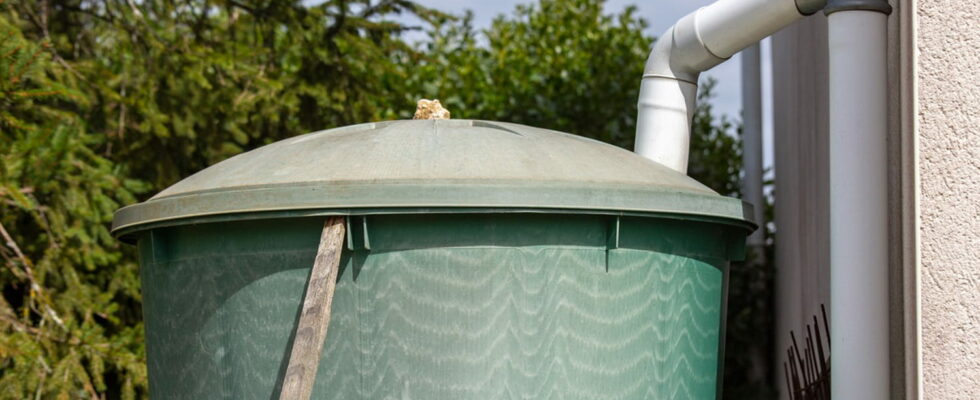With global warming and drought, more and more people are collecting rainwater for their personal use. But be careful, because you can’t use it just any way!
With ever more frequent episodes of drought in France, water is more than ever a precious resource. In this context, rainwater recovery stands out as a solution that is both ecological and economical. Easy to collect via gutters connected to tanks or cisterns, it can then be used for various domestic needs, thus reducing the use of the precious drinking water network. However, not all uses of rainwater are permitted, and the legislation strictly regulates these practices.
Already, to comply with French regulations, a rainwater recovery installation must include a storage tank, which allows rainwater to be collected and preserved. Its capacity must be adapted to the needs of the user and the size of the recovery surface.
It must be accompanied by a filtration device to eliminate impurities present in rainwater. This filter must be regularly maintained to ensure its performance. A distribution system is also necessary to transport the collected water to the intended points of use. This device must be designed to avoid any risk of contamination between rainwater and drinking water.
Who says water, says drink. So, is rainwater drinkable? We suspect this, but the answer is no, because it does not meet the quality standards of the Public Health Code on drinking water. Due to the presence of pesticides and hydrocarbons found there, it represents a health risk. Thus, according to the decree of August 21, 2008 governing the use of rainwater, it is prohibited to drink it, to use it for cooking or for washing dishes, except after rigorous treatment which can make it drinkable, which remains rare and complex for an individual.
Concerning indoor uses, such as toilets, washing clothes, washing floors or cleaning in general, the use of rainwater is authorized. However, specific equipment and water treatment are necessary to avoid any contamination of public networks or health risks. Please note, connected installations must be declared to the town hall in order to ensure their compliance and to avoid cross-contamination with the public sanitation network.
Finally, rainwater can be used for outdoor use without constraints. The 2008 decree does not provide for any restrictions on outdoor activities. You can therefore use it unlimitedly, whether to water the garden or to clean your car.
In order to encourage individuals to use drinking water collection, financial aid exists to carry out the installations, such as the energy transition tax credit (CITE), the zero-rate eco-loan or even local subsidies. . Be careful, however, to respect the strict framework, because in the event of non-compliance, sanctions may be applied. So make sure you know these rules before you start!
